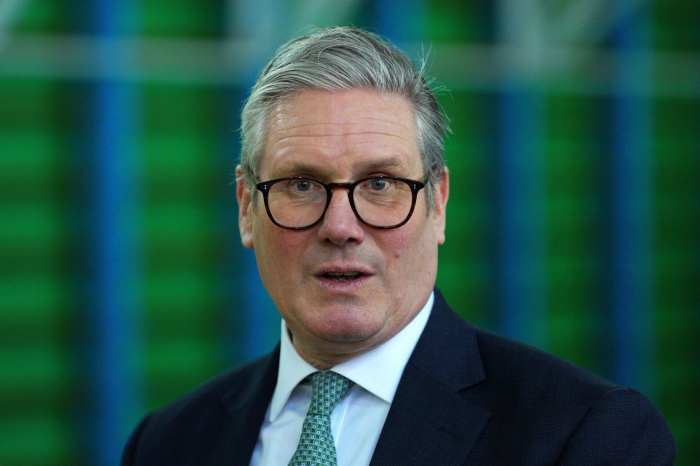European allies must step in to help Ukraine fight Russia, British Prime Minister Keir Starmer has said, amid concerns Donald Trump will cut U.S. support when he returns to the White House next week.
In an exclusive interview with POLITICO, the U.K. leader committed to playing “a full part” in any peace initiative that comes with Trump’s return in the days and weeks ahead — including potentially deploying British troops in a peacekeeping role.
But he said it was vital that all of Ukraine’s other allies increase military support now and put President Volodymyr Zelenskyy in the “strongest possible position” for negotiations with Russia. For European nations that means filling the gap in support that many observers fear will open up under Trump after nearly three years of American military backing by outgoing President Joe Biden.
Asked if Trump’s return meant Europe would need to deliver much more for Ukraine, Starmer said: “Yes, I think collectively we do need to do more. I think that is recognized across Europe.” He insisted he was not telling other countries “what they should and shouldn’t do” — noting that he is “a political collaborator” — but underscored that “we are living in a different context now in terms of conflicts around the world.”
Trump is due to be inaugurated on Monday after his November election victory and has alarmed Ukraine’s allies by suggesting he will end the war within a day. Even if that timeline doesn’t stick, Trump’s team believe he will rapidly find a way to insist on peace negotiations.
This week, his nominee for Secretary of State Marco Rubio said Ukraine and Russia will both need to compromise.
Boots on the ground?
Such rhetoric has inevitably focused the minds of European leaders on what peace will look like. One idea floated by French President Emmanuel Macron — which is now gaining ground — is for a multinational peacekeeping force to be deployed.
But putting British boots on the ground would be controversial for Starmer at home, and is likely to trigger demands in parliament for MPs to debate and potentially vote on such a step before it is taken. Asked if he would commit to giving legislators a say in Westminster, Starmer declined to do so.
“We are getting well ahead of ourselves,” he said. “One of my concerns is an assumption about what might happen in the coming days. And my concern is that that could lead to some people taking their eye off the ball for today. Ukraine is in a war situation. And whether it’s war or negotiation, Ukraine needs to be in the strongest possible position.”
Despite all that, the Labour leader’s mind already appears to be made up that British personnel will be there in some role when the time comes. “I don’t want to get ahead of discussions about precise roles, but we will play our full part,” he said.
“Obviously there are many conversations [about] what that means. For me, what matters is that we bear in mind the principles: This has got to be enduring, it’s got to be effective and it’s got to be a deterrence because the worst of all worlds is a cessation of hostilities that isn’t enduring and simply leads to further Russian aggression in years to come.”
Treading carefully on trade
On the eve of the disruptor-in-chief’s second term in the White House, Starmer was careful to be diplomatic about the risks Trump poses to European security — and global trade. He said he’d spoken to Trump “a number of times” including over dinner in September.
“We spoke about Ukraine on the phone in the call we had before Christmas,” he said of Trump. “The U.S. has played a vital role here. We should pay tribute to that. We work with the U.S. on a daily basis as you’d expect and we will continue to do so. And I am absolutely sure that President-elect Trump is clear-eyed about the vital role of the U.S. in the resolution of this.”
On trade, Starmer said he wants talks to begin with Trump about a U.S.-U.K. agreement in the weeks ahead, and played down the threat of sweeping new American tariffs.
“We haven’t had the inauguration yet so let’s see what the decisions are when we get to that stage,” Starmer said. “But I have been clear that we would like to have discussions about a trade deal with the U.S.”
“We don’t accept the argument that there’s a binary choice between a reset with the EU and a deal with the U.S., and obviously the time for those decisions will be in the weeks and months to come,” he added.
Trump has threatened across-the-board tariffs of as much as 20 percent on all imports, with some trade experts suggesting the U.K. will need to distance itself from EU trade to escape punitive measures from the incoming U.S. president.
Politico
More about:
















































